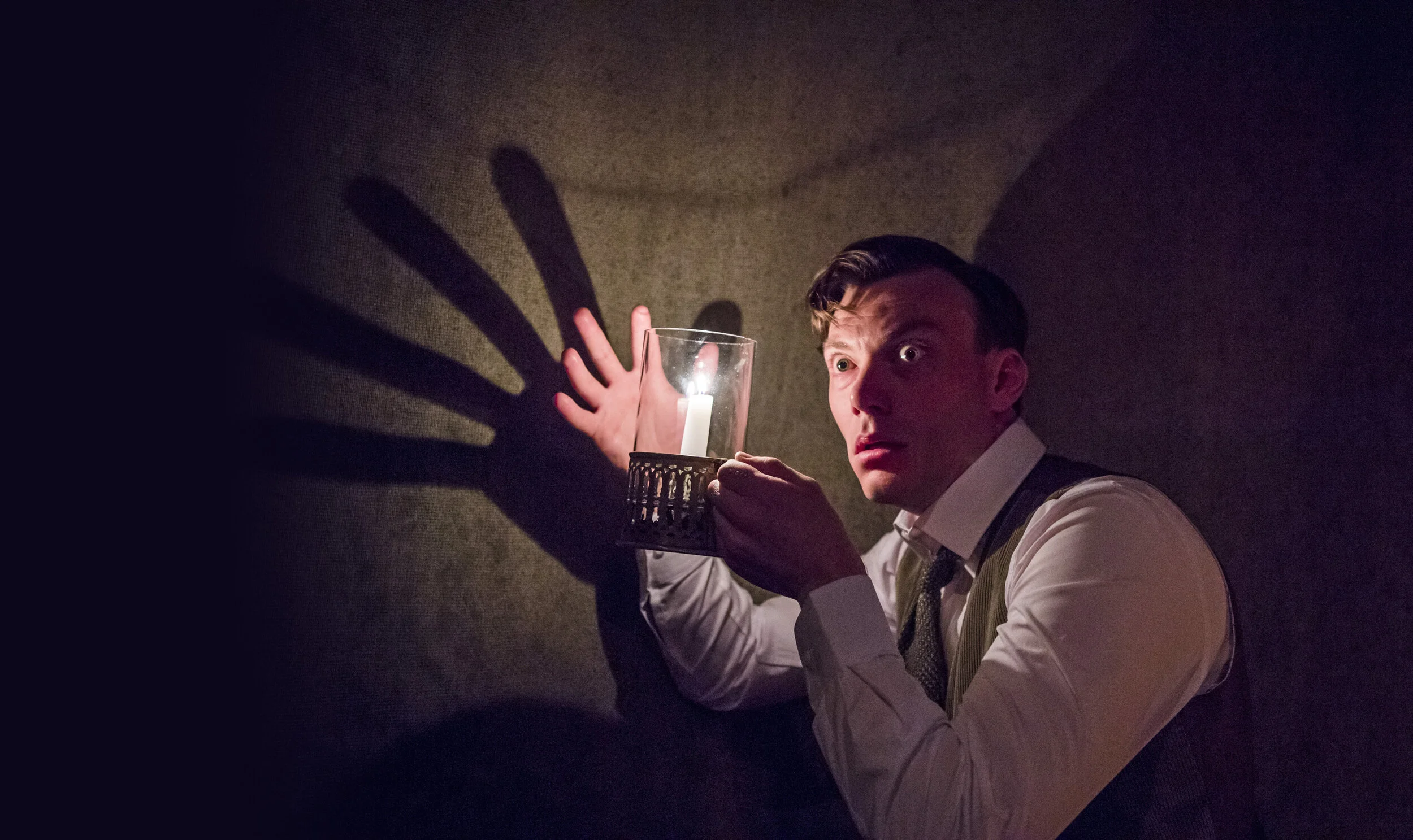ALL-MALE PIRATES OF PENZANCE
What is the point of an ‘all-male’ Gilbert and Sullivan? Director Sasha Regan has made a career out of excluding women performers from her rejuvenation of the G&S classics. Last night at the Arts Theatre we were treated to her men-only Pirates of Penzance. I say ‘treated’ because in most ways (but not all) this production is hugely entertaining, freshening up the old operetta with a 21st century kick up the Victorian warhorse.
From the opening overture (mercifully cut short – your reviewer is no fan of overtures) played on solo piano by Giannis Giannopoulos, the curtain rises on a chorus of Cornish corsairs in colourless garb. The costuming of the whole show has a deliberately monochrome palette except for the scarlet tunic of the major general. No, I can’t explain that choice for it gave the whole show a needlessly drab look.
The singing by the pirates is strong and chunky, the movement energetic and leapingly gymnastic. But then the Regan touch; the first female we see, Ruth the ‘piratical maid-of-all-work’ is played by a man, Robert Wilkes. And soon a bevy of young ladies appear, except none of them is actually female (though, who knows, some may well be self-designate as ‘she/her’). Dressed in all-white they sing their alto and soprano parts in an effective but at times underpowered way. Some voices are convincingly high register, others a bit strained; falsetto is hard to sustain I imagine.
The big test of the all-male singing shtick comes with the leading ‘lady’ Mabel. Sullivan wrote this part for a coloratura sop with bel canto ornamentation around her first big number, ‘Poor wandering one’. This is a severe test for a male singer. To be fair, Luke Garner-Greene as Mabel gave it his best shot, but it seemed like a struggle. His actorly delivery was spot on as the coy lover but the voice was a bit thin.
Tom Newland as the Pirate King also leapt about in that beefy buccaneery Johnny Depp way and though his vocal range seemed a bit limited, he didn’t have to struggle with stratospherically high notes.
David McKechnie was superb – his diction crystal clear and word perfect in that mad Gilbertian patter song listing his many merits as a modern major general. He also won my award for ‘best handlebar moustache in a musical’. Lewis Kennedy also dominated the stage as the sergeant of police showing us that a policeman’s lot is not an ‘appy one / appy one’. His fellow officers did a brilliant job with their comic marches and silly gyrations. But why no police helmets? These were the boys in white, not blue. And as such often confused with the pirates in similar uniform.
Actually though the name on the show’s label is Regan’s, much of the plaudits should go to choreographer Lizzi Gee. She created an ever-changing kaleidoscope of stage pictures. The ensemble moved as if on wheels and glided from one set of postures to another in an instant. Grouping and regrouping into new patterns, the pirates, ladies and police choruses gave the whole show a tremendous sense of energy and fun.
I still don’t see the point of an all-male cast in this show but it was an exhilarating experience. And with some judicious not-in-the-script asides and the endlessly inventive staging, the whole thing seemed much fresher and youthful than many a Pirates I have seen over many years as a G&S fan. Regan’s direction means that despite the gender fluidity, she has great respect for the original work. There is no messing about with the lyrics or updating of libretto, the lovely parlour ballads were sung with due care and attention and there was no shortage of rousing choruses. The lighting design by Ben Bull was effective especially in the nightime scenes played with spooky torch lights. There was a quite astonishing evocation of rowing a boat out on the briney - done with waving sheets and flags seemingly billowing in a non existent wind.
I may not see the point of Regan’s all-male choice but you can’t help loving her priority for presenting an old often over-revered show in a newly-minted edition. The show stil works even after 150 years. Maybe i do see the point after all.
PHOTOS: DANNY KAAN








